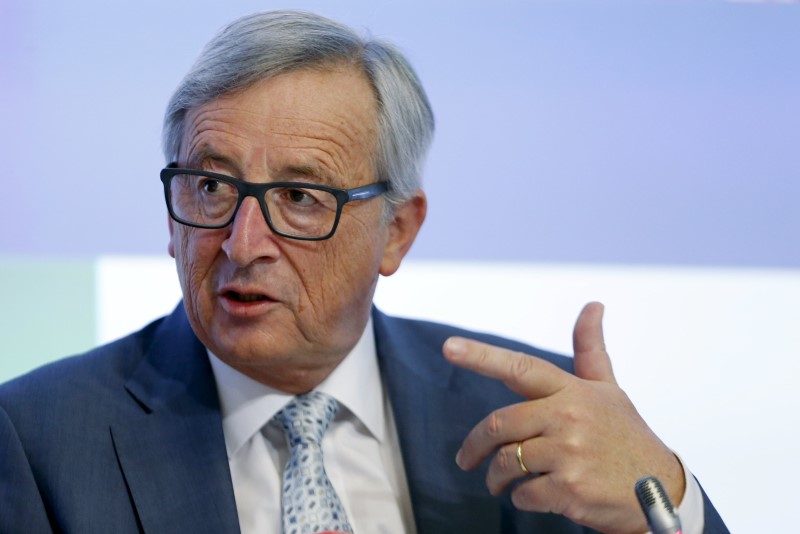Investing.com -- The British pound surged to new highs against the euro and dollar Friday on optimism that the U.K. and EU will avoid a disorderly Brexit on Oct. 31, although the basis of such hopes remained open to question.
By 4:15 AM (0815 GMT), the pound was at $1.2465, just off an intra-day high of $1.2482 that was its highest since July 12. It was also at 1.1364 against the euro, having earlier hit a four-month high of 1.1380.
The pound had started to rally late on Thursday after Sky News quote outgoing European Commission President Jean-Claude Juncker as saying that the U.K. and EU could still strike a deal to prevent a disorderly Brexit on Oct. 31.
However, Juncker’s comments amounted to little more than a restatement of what has long been EU policy regarding the Brexit negotiations, and Juncker said elsewhere in the interview that he hadn’t read the U.K.’s latest proposals on how to break the deadlock over the so-called “Irish backstop”, under which the U.K. province of Northern Ireland would be likely to stay more aligned with EU regulation in future.
By contrast, Irish Foreign Minister Simon Coveney told local media on Friday that there was still a “large gap” between the two sides and that much of what was being touted as progress by the U.K. was “spin”.
The U.K.’s latest proposals, which were sent in writing to the EU this week, are not legally binding and therefore still don’t meet the key EU desire of proper legal guarantees.
Elsewhere, the dollar was broadly lower amid a revival in risk appetite caused by the resumption of trade talks between junior Chinese and U.S. officials. Higher-level talks are due to resume in early October.
That helped the Chinese yuan to strengthen slightly, as did the fact that another cut in the People’s Bank of China’s one-year loan rate didn’t ease financial conditions as much as some had hoped for.
Another beneficiary was the Russian ruble, which hit its highest level against the dollar since the end of July. By 4:15 AM ET, it was at 63.85 to the dollar.
The safe-haven yen was broadly unchanged after the Bank of Japan took action to steepen the domestic yield curve, while consumer price inflation data came in weaker than expected, raising the pressure on the BoJ to take more action at next month's policy meeting after it chose to leave its policy unchanged on Thursday.
